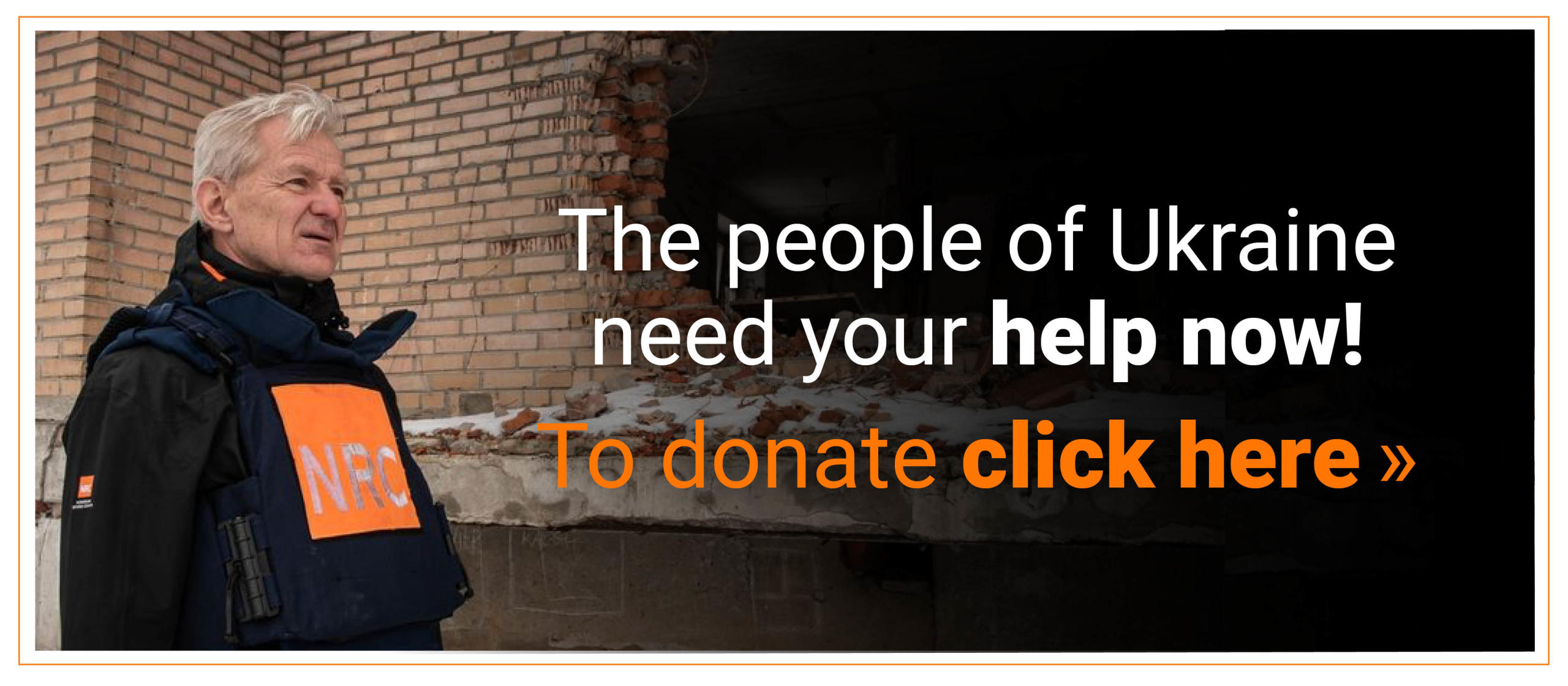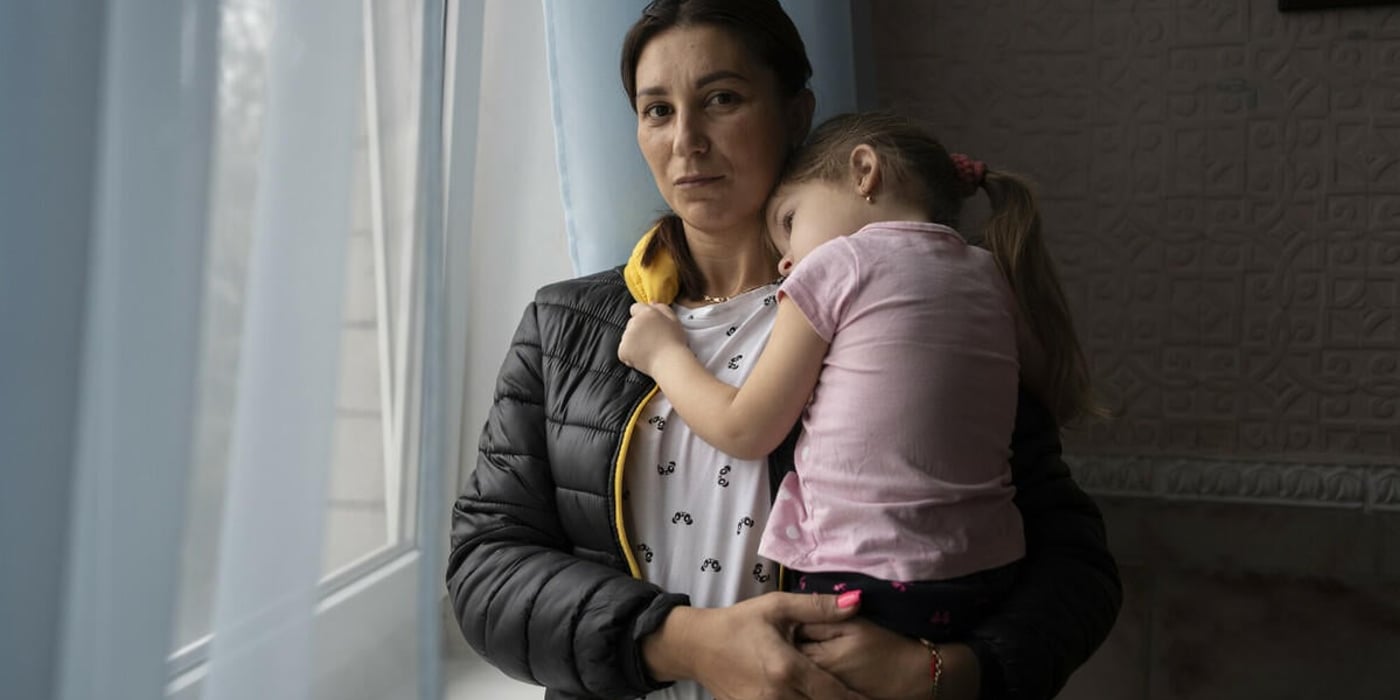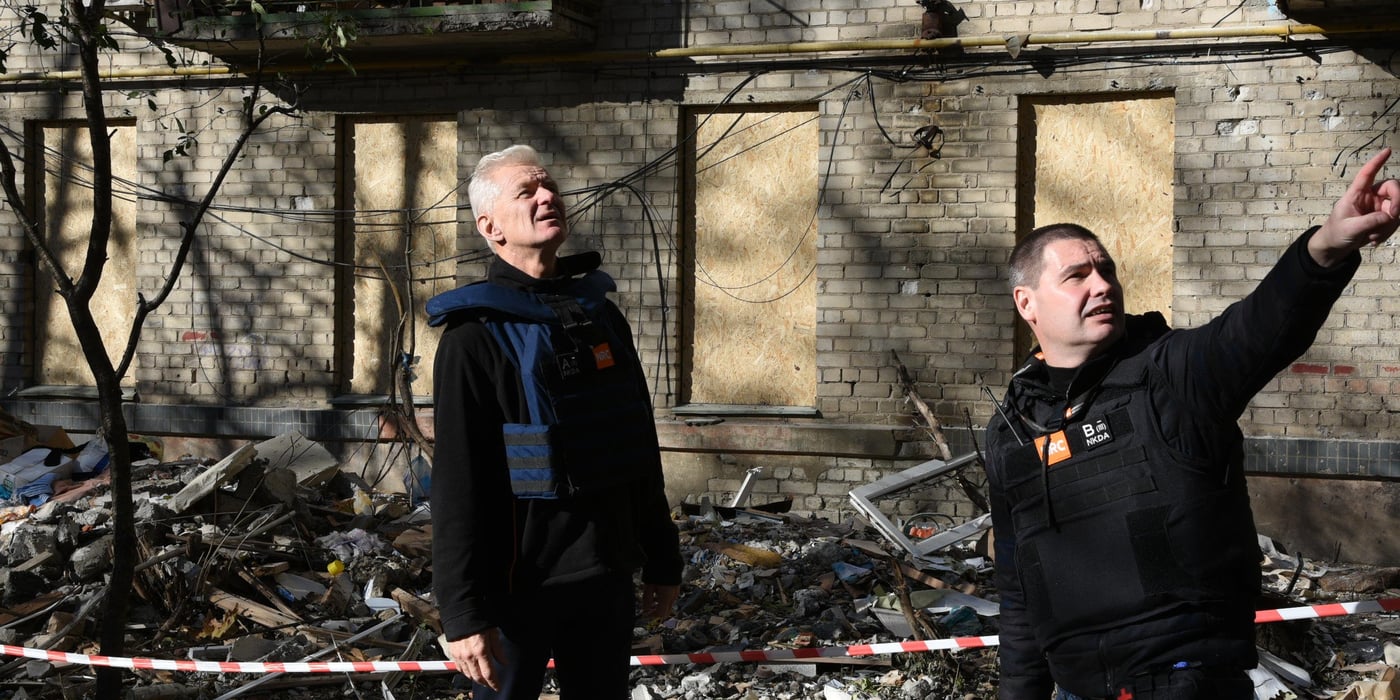
”Communities and families have been divided by the frontline in eastern Ukraine for the past eight years. The decisions of far-away politicians make it impossible for grandmothers to see their children and grandchildren on the other side. With increased military and political tensions, thousands of families will be separated indefinitely.
”There is too little attention to this looming humanitarian catastrophe. Communities are exhausted from the conflict and need humanitarian assistance and peaceful solutions instead of arms. We call on our international partners to support the humanitarian response in Ukraine, nine per cent funded so far, to address existing needs and prepare for emergency response.
”The freezing pensioners I met near the frontline told me they are struggling to survive in their isolated, war-ravaged villages. Tens of thousands have endured almost daily shelling and life with limited or no access to water, electricity and essential services for years. They are terrified about the prospects of a return to full-scale war and feel forgotten amid the high-level political games playing around them.
”While my organisation and our humanitarian partners are ready to respond to increased needs, the international community must ensure that no efforts are spared to find diplomatic solutions to the current situation. Otherwise, we will see more human rights violations, increased suffering, massive forced displacement, and a further worsening of already dire humanitarian needs.”
Facts and figures:
- The conflict’s civilian death toll has topped 3,000, with over 7,000 people injured since 2014. Over 50,000 houses have been damaged or destroyed.
- Of the 2.9 million people in need of aid in 2022, 1.3 million live in Government-controlled areas, and 1.6 million people live in non-Government-controlled areas.
- The UN’s Humanitarian Response Plan for 2022 calls for $190 million to assist 1.8 million people. By late February 2022, the Ukraine appeal was 9 per cent funded with USD 17.6 million. The humanitarian response in Ukraine has historically been underfunded.
- Ukraine is "the oldest" humanitarian crisis globally, as about 30 per cent of people in need are elderly.
- The UN estimates that there are 854,000 internally displaced people in Ukraine.
- Eastern Ukraine is divided by a 427-kilometre-long front line with seven crossing points. Since March 2020, movement across this line has been significantly restricted. As a result, the number of crossings has decreased by over 90 per cent - from over 1.2 million per month before the Covid-19 pandemic to less than 100,000 per month.
- Ukraine is one of the most mine-contaminated regions in the world. It ranks 5th in the world for civilian casualties as a result of landmines and explosive remnants of war and in the top three for anti-vehicle landmine accidents. Landmines and explosive devices have caused almost 70 per cent of civilian casualties since July 2020.
- NRC has been working in Ukraine since 2014, assisting over 700,000 people with food, shelter, water, sanitation and legal aid.
For more information or to arrange an interview, please contact:
- NRC global media hotline: media@nrc.no, +47 905 62 329.
- Regional Communications Adviser Christian Jepsen: christian.jepsen@nrc.no, +254 706 248 391 (WhatsApp).
- Video b-roll of Secretary General Jan Egeland’s visit to Ukraine in February 2022, and video showing humanitarian needs, is available to download for free use here.
- Photos depicting humanitarian needs are available to download for free use here.




